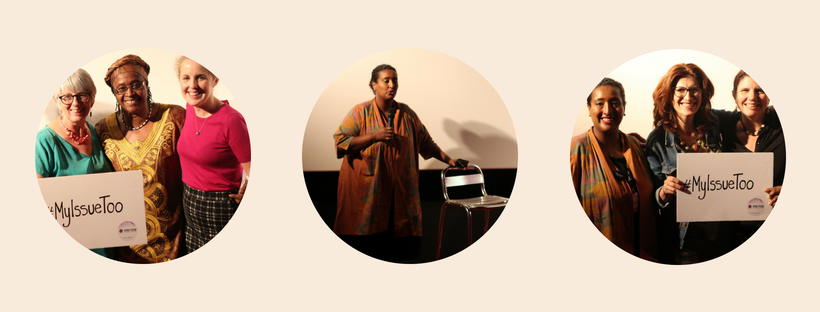The Screening: The Cut: Exploring FGM / Cinéma: The Cut: Exploring FGM EN/FR
On the evening of June 5, The Networks hosted a screening of ‘The Cut: Exploring FGM at Brussels Cinéma Aventure . The screening gathered over 82 attendees including Network members who afterwards participated in a Q&A with Al Jazeera correspondent Fatma Naib on the making of the documentary which travels from Somaliland and Kenya to Sweden, exploring the subject of FGM.

With the documentary making its official release in October 2017, the journey covers people and locations in very current situations as they relate to FGM. The documentary exposes both the reality of an ongoing practice and the attempts being made to it.
The screening was also an opportunity to review both the efforts being made to stop FGM aswell as addressing the areas where it continues to persists. With the documentary looking at FGM in the context of both Europe and countries of origin, acknowledgment was given tothe building bridges to end FGM EU approach that tackles the transnational nature of the practice.
To watch the documentary click here.
For other documentaries on FGM click here
Le film: The Cut: Exploring FGM
Dans la soirée du 5 juin, le réseau a organisé une projection de « The Cut : Exploring FGM » à Bruxelles Cinéma Aventure. La projection a rassemblé plus de 82 participants, y compris des membres du Réseau qui ont ensuite participé à une séance de questions-réponses avec Fatma Naib, correspondante d'Al Jazeera, sur la réalisation du documentaire qui se déroule du Somaliland et du Kenya en Suède.

Avec la sortie officielle du documentaire en octobre 2017, le voyage couvre des personnes et des lieux dans des situations très actuelles en rapport avec les mutilations génitales féminines. Le documentaire expose à la fois la réalité d'une pratique en cours et les tentatives qui y sont faites.
La présélection a également été l'occasion de passer en revue les efforts déployés pour mettre un terme aux mutilations génitales féminines ainsi que les zones où elles continuent de se perpétuer.
Avec le documentaire sur les mutilations génitales féminines dans le contexte de l'Europe et des pays d'origine, il a été reconnu que la construction de passerelles pour mettre fin à l'approche des mutilations génitales féminines aborde le caractère transnational de la pratique.
Pour regarder le film, cliquez ici.
